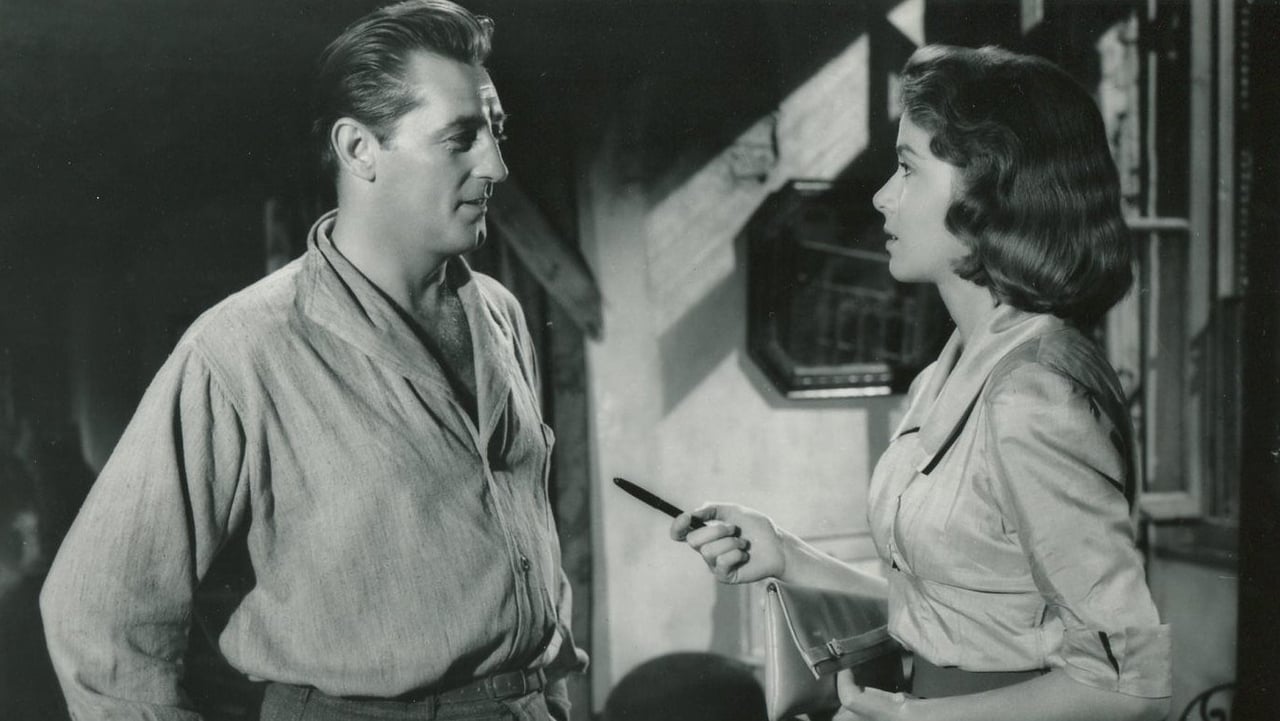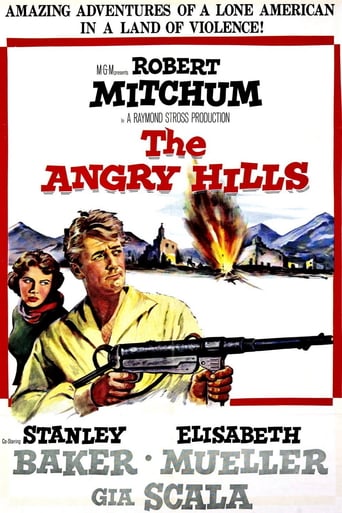

This is a well-cast and quite enjoyable Greek-set World War II yarn,which manages to entertain even with the studio edits(Which caused confusion to some).War Correspondent Robert Mitchum is suitably both laconic and heroic as he,initially reluctantly,seeks to escape Nazi-occupied Greece with a memorised list of Greek Patriots who will feed information to the Allies,whilst feigning collaboration with the Germans. Acting is generally good,with Mitchum and Gia Scala(As the Greek Village girl who aids him and loves him)bonding well together.Some interesting supporting performances too,including a surprising but vital appearance by Sebastion Cabot later in the movie. We also have a risqué(For 1959)early Taverna scene,featuring the "exuberant" Singer/Dancer Marita Constantinou,which must have been filmed twice in anticipation of possible Censorship. The VHS copy I have from the U.S.A shows her bosom discreetly covered - The recently acquired DVD(U.K)reveals her to be topless! Overall,some good,nostalgic location filming:The Plaka,Tourkolimano,etc.;adds atmosphere to this likable Adventure/Drama.
... View MoreHaving watched this film as a 10/11 year old child in Manchester,UK in 1969, I am intrigued by the very explicit topless dancer scene! I think that I would have remembered this scene, and wonder if it was censored in the UK!! Otherwise not a bad movie, though it was overlong. It would definitely have looked better in colour.Interesting to see so many top rate actors in one film, even though some only had brief roles. Stanley Baker and Gia Scala would appear together in another Greek located film two years later, namely "The Guns Of Navarone"! Personally, I think the look of the film was quite good. The locations, and set dressing,period vehicles looked quite authentic. If I remember correctly in the UK this film was shown on a double bill, with a Tarzan film as the second feature. The Tarzan film was in colour!!
... View MoreOne of Robert Mitchum's and Director Robert Aldrich's Least Impressive Films. Both Usually Reliable Professionals are Off Their Game on this one. It is a Flat and Tired Movie from the Beginning, Never Managing to Grab Hold of the Story's Intrigue and it is Lacking in the Period Setting of WWII.The Movie Looks Like a 1959 Movie set in 1941. The Action is Dull and Telegraphed and the Suspense Never Builds Beyond its Premise. The Script is a bit Confusing and Nothing in this Misfire Maintains Anything More than Mediocrity.A Dud and a Disappointment from All Involved. The Almost Two-Hour Length is Excruciating.
... View MoreThe opening developments in this picture are promising in the manner that Hitchcock so often exploited: an innocent bystander finds himself in the wrong place at the wrong time, and is drawn into intrigue of which he has no prior knowledge, and in which he has no interest. But he has something that the villains want - while all he wants is to get out of the situation alive. So far, so good. It is not long, however, before the complications give way to standard action fare, the emphasis now being on hiding, getting away, deciding who is trustworthy - elements used many times in many pictures, some better, some worse. Ultimately, the story disappoints. There are rewarding performances by steely-eyed Stanley Baker, and sweaty, cowardly Theodore Bikel. Robert Mitchum plays the lead role with competence, if not distinction.
... View More